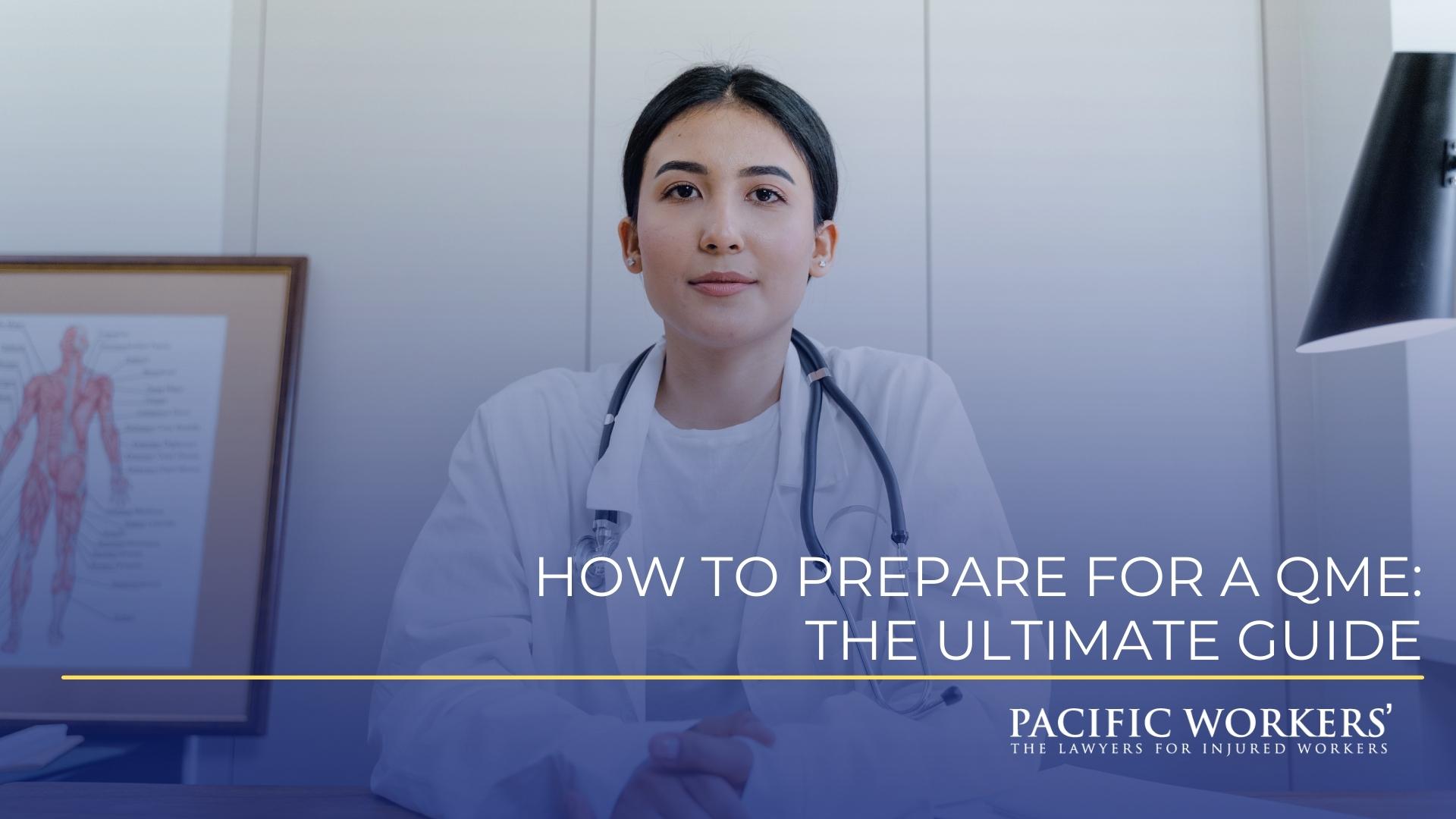How to Prepare for a QME in Your California Workers’ Comp Case
If you’ve been injured at work and the insurance company is delaying or denying care recommended by your Primary Treating Physician (PTP), you may be scheduled for an evaluation with a Qualified Medical Evaluator (QME). The QME process is one of the most important stages in a California workers’ compensation case, and it can significantly affect your access to treatment, benefits, and the overall direction of your claim.
Preparing for your QME evaluation is critical. It’s your opportunity to make sure the doctor understands the full extent of your injuries and how they’ve impacted your life. In this guide, we explain how to prepare for a QME appointment, what to expect, and how to avoid common mistakes that can harm your case
1. Understand the QME’s Role in Your Case
Before your appointment, it’s important to understand what a QME does and doesn’t do. A Qualified Medical Evaluator is not your treating doctor. They don’t provide care or prescribe medication. Instead, their job is to evaluate your injuries and issue a detailed report that helps resolve disputes in your workers’ compensation claim.
This report may influence whether you receive certain treatments, whether your injury is considered work-related, and whether you qualify for disability benefits. In many cases, the QME’s opinion carries more legal weight than that of your Primary Treating Physician. That’s why being informed and prepared matters so much.
2. Be Respectful — But Stay Observant
You don’t have to “win over” the QME, but professionalism matters. The evaluator’s impressions of you, including your behavior and credibility, may be noted in their report. Be polite, answer questions honestly, and stay calm, even if the appointment feels brief or impersonal.
That said, you also have a right to expect a thorough, fair evaluation. If the doctor rushes through the exam, doesn’t ask about all your symptoms, or seems dismissive, take notes and tell your attorney. Documenting what happened during the appointment can be useful later if the report is inaccurate or needs to be challenged.
3. Choosing the Right QME Can Make or Break Your Case
While QMEs are supposed to be neutral, not all evaluators approach their role the same way. Some are known for fairness and thoroughness; others tend to favor insurance companies or rush through appointments. That’s why it’s critical to carefully research your QME options before making a selection.
If you’re unrepresented, you’ll receive a panel of three QMEs from the state, and you’ll need to pick one. If you’re represented, your lawyer can help select an evaluator or negotiate an Agreed Medical Evaluator (AME). Either way, working with a knowledgeable attorney gives you a major advantage: they often know which doctors are more credible, experienced, or insurer-friendly, and can guide you toward the best option for your specific case.
4. Know Your Symptoms and Speak Up
One of the most important things you can do before your QME appointment is to review your medical records and make sure you understand your symptoms. The QME can only evaluate what you tell them, so if you forget to mention a specific pain or limitation, like knee issues alongside back pain, it may not be addressed in the report.
Take time to go over your prior doctor visits, diagnoses, and any paperwork you’ve been given. If you receive a pre-appointment questionnaire from the QME, be as detailed and thorough as possible when describing your symptoms, how they affect your daily life, and when they began. It’s your chance to give the evaluator the full picture — don’t leave anything out because you think it’s not relevant.
5. Be Prepared for the Wait
QME reports typically take about 30 days to be issued, but delays are common, especially if either party challenges the findings or requests a supplemental report or deposition. It’s important to understand that this part of the process can take time.
Even after the report is issued, the case may not move forward immediately. Disputes over the QME’s conclusions can lead to additional legal steps, which may extend the timeline. Staying patient and prepared for these delays can help you manage expectations and focus on your recovery.
Moving Forward With Confidence
A QME evaluation is an important step in your workers’ compensation case, but it’s just one part of a larger process. How you prepare, what you say during the exam, and how you respond to the report afterward can all influence the outcome of your case.
Taking the time to understand the QME’s role, being thorough and honest about your symptoms, and approaching the appointment professionally can help ensure your injuries are accurately documented. But you don’t have to navigate this alone. An experienced workers’ comp attorney can guide you through the QME process, protect your rights, and help you take the right next steps based on the report.
At Pacific Workers', The Lawyers for Injured Workers, we’ve helped thousands of injured workers across Northern California. If you have questions or need help preparing for your QME, contact us for a free consultation.


